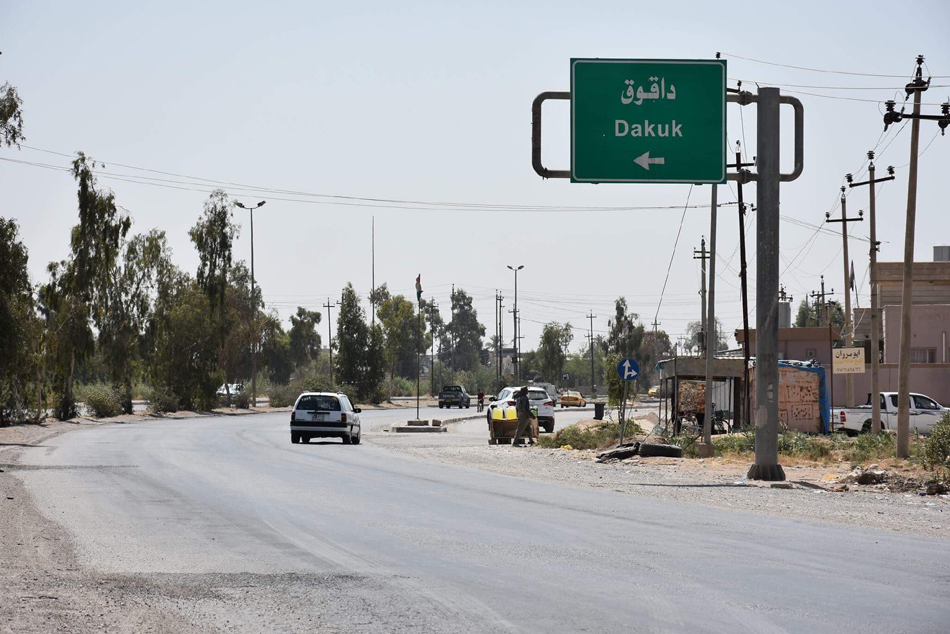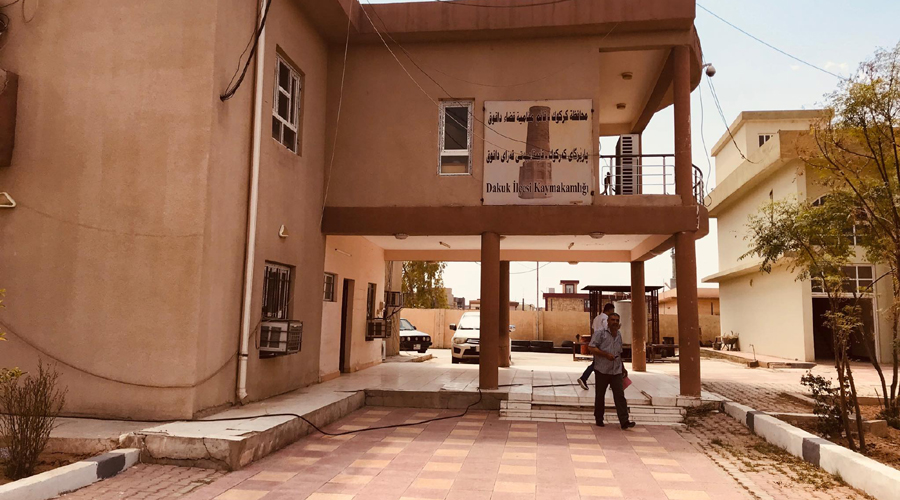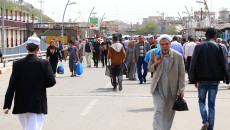The decision to assign a person to run the affairs of the Daquq District by Kirkuk governor was canceled after the intervention of the Iraqi Council of Ministers based on objections by the Patriotic Union of Kurdistan PUK and the Iraqi Turkmen Front ITF, two sources told KirkukNow.
The PUK and the ITF challenged the decision of Rakan Saeed, the acting governor of Kirkuk, to assign a person to manage the affairs of the Daquq District as an acting Commissioner, as the PUK threatened to call for public protests in front of the District Council building, while the ITF described the decision as unfair and an attempt to "impose the will (by force)."
Rakan Saeed Al-Jibouri has assigned, according to a letter issued on January 19, 2023, Saadoun Hayadi Majed, the legal advisor at the Kirkuk local administration office, to manage the affairs of Daquq district commissioner, instead of Louis Fendi Muhammad, who will be retired due to his age.
Al-Jibouri indicated that he issued the decision based on the third paragraph of Article 39 of the Provincial Law No. 21 of 2008, for the "public interest," as stressed in the decision.
According to this legal article, the governor issues an administrative order to appoint commissioner (mayor) for districts and sub-districts, and they are subject to his direction and supervision. However, according to the law that KirkukNow has reveiwed, there is no reference to the power of the governor to assign a person to run the duties of the commissioner.
The northern oil-rich city of Kirkuk, located 238 kilometers north of Baghdad, is an ethnically mixed province for 1.7 million Kurds, Sunni and Shiite Arabs, and Turkmen. It has long been at the center of disputed territories between Baghdad and Erbil.
According to the Iraqi constitution, which was approved by a majority of Iraqi voters in early 2005, the fate of the disputed territories must be decided after three stages of normalization, census and referendum, according to Article 140, up to end of 2007.
The governor of Kirkuk appointed an agent for the district of Daquq and granted the position to a person from the Arab component, while it is of the entitlement and share of the Kurds
The constitutional article is based on the implementation of Article 58 of the Iraqi State Administration Law for the Transitional Period, which was issued in March 2004 and consists of three main articles.
The disputed territories is a constitutional term used to refer to the political and administrative situation in Kirkuk province and the areas that have been changed in terms of administrative and demographic conditions due to the policies of the Iraqi government from 1968 up to 2003.
Up to the present, only part of the first has been implemented, which led to tensions over administrative and security posts, disputes over ownership of lands and farms and several other issues leaving the area in poor conditions in terms of public services and security.

On January 24, three Kurdish lawmakers from Kirkuk, under the Patriotic Union of Kurdistan PUK, one of the leading Kurdish parties, called on the people of Daquq district to demonstrate in front of the district office building to express their refusal to "lack of balance in the distribution of administrative positions in Kirkuk and the districts and sub-districts of the governorate."
"The governor of Kirkuk appointed an agent for the district of Daquq and granted the position to a person from the Arab component, while it is of the entitlement and share of the Kurds," a statement by the three MPs said.
The three Kurdish lawmakers published a document indicating that out of a total of 12 commissioners for the districts and sub-districts in the governorate, Arabs and Turkmens each hold five positions, while the Kurds hold only two positions.
Subsequently, the Daquq office of the ITF issued a statement denouncing the governor’s administrative order, condemned "the appointment of a person from outside the district to assume the position of Qaim-maqam" and described the decision as an attempt to "impose will (by force)" and stressed that it was "unacceptable."
The ITF also in turn considers the post of Daquq mayor as a right for the Turkmen component and demands a reconsideration of the decision.
"Stop the marginalization of the Turkmens in the issue of administrative positions."
After holding the first elections for the provincial councils in 2005 and up to October 16, 2017 and the return of the Iraqi forces to Kirkuk and the withdrawal of the Kurdish Peshmerga (fighters) from it, the post of Daquq mayor went to the Kurds.
On November 21, 2017, the Daquq District Council withdrew confidence from Emir Khawakarm after accusing him of raising the flag of the Iraqi Kurdistan Region IKR in government departments in Daquq, his participation in the Kurdistan Region’s independence referendum that took place on September 25, 2017, and allowing the opening of headquarters for the Kurdistan Workers’ Party PKK in the district.
Louis Fendi, the director of Al-Rashad district, who assumed the position of deputy mayor of Daquq after the events of October 16, 2017, will be retired shortly.
Stop the marginalization of the Turkmens in the issue of administrative positions
The acting governor of Kirkuk, decided on July 4, 2018 to dismiss the mayor of Daquq based on the law of governorates that are not affiliated with a region and the decision of the Daquq District Council.
However, Amir Khawakram, the former Commissioner of Daquq nominated by the PUK, have several times sought to return to his position and file a lawsuit, but the Supreme Administrative Court in Iraq rejected his appeal and he was referred to retirement.
In a statement he made to KirkukNow at the time, Khawakram said, "Our issue is political. We have not been involved in any administrative, financial or moral corruption."
Daquq district is 44 km south of the city of Kirkuk, and is inhabited by a mixture of Kurds, Turkmens and Arabs.
On January 25, Dylan Ghafoor, one of the deputies in the Iraqi parliament who called on the people of Daquq to gather in front of the Daquq mayoralty building to protest against the decision, told KirkukNow, “We canceled the sit-in, because the Presidency of the Council of Ministers decided to cancel the decision to appoint a new mayor.”
(KirkukNow) learned from another source in Parliament that the decision was canceled, but the Kirkuk administration is not ready to reveal any details, and the media department of the provincial office did not respond to KirkukNow calls.
Back in 2005, the components of Kirkuk have to come to an oral agreement for the kurds to take the position of governor and to appoint and Arab as governor deputy while for the Turkmens to hold the position of vice president of the provincial council and later it was changed to the head of the provincial council. They have also agreed to share the positions of mayors for districts and sub-districts.






